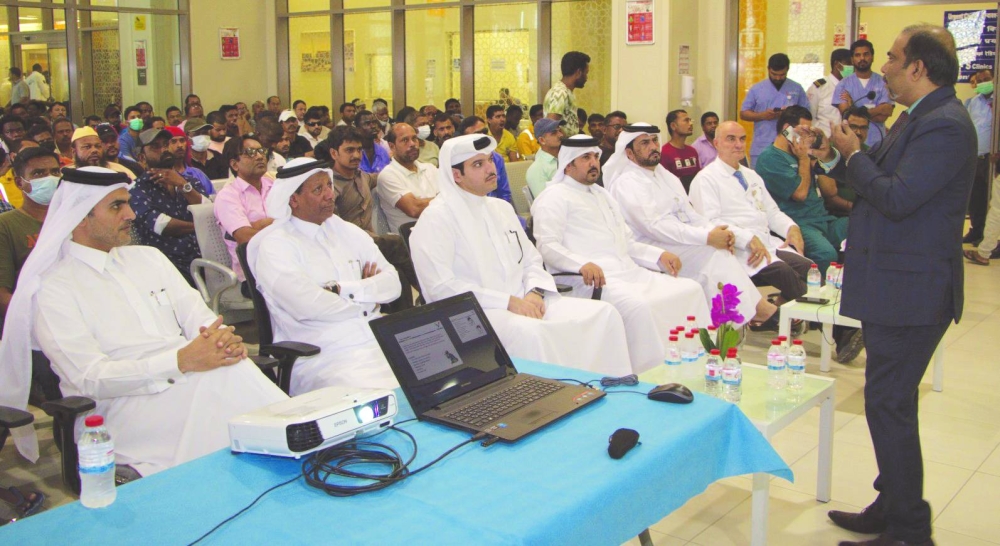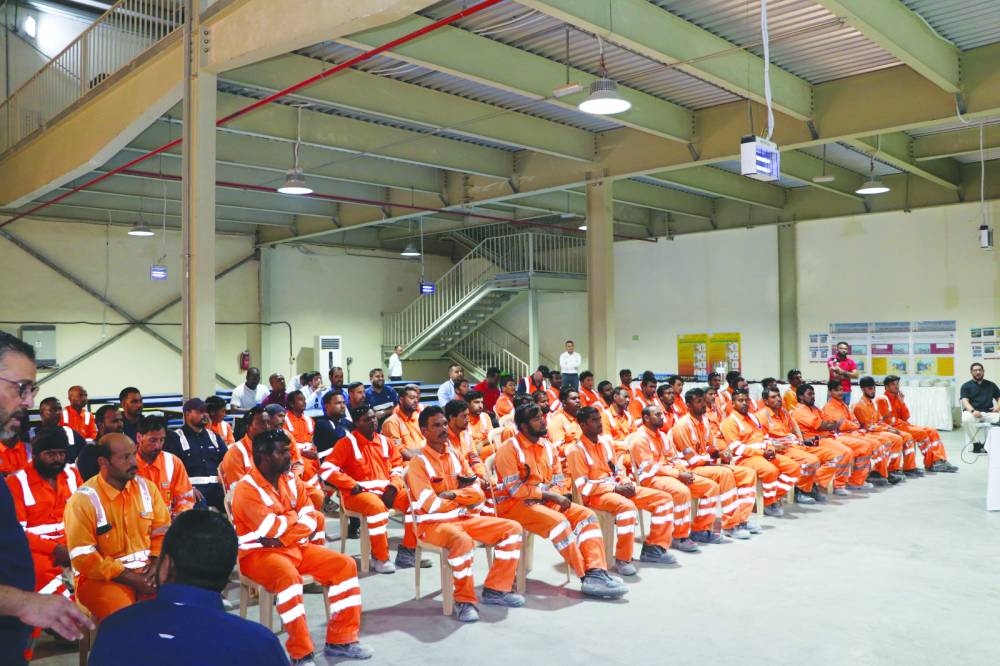The National Human Rights Committee (NHRC), in collaboration with other state agencies, continued a campaign aimed at preventing heat exhaustion, according to an NHRC statement on Wednesday.
The campaign that kicked off Aug 1 featured meetings, lectures and field awareness seminars, as well as distributing awareness publications in three languages - Arabic, English and Urdu, and providing workers with tools and supplies that protect them from heat stress.
The awareness meetings and lectures targeted workers of companies contracting with the Public Works Authority (Ashghal), workers of Qatar Fuel Company (Woqod), and workers of the US embassy. The lectures sought to raise awareness of the impact of heat stress on the work environment, and workers' rights to life, physical, mental and psychological health.
The statement called for all stakeholders, especially employers and workers, to implement the legal legislation on summertime working hours for construction, industry and delivery workers to further protect them from heat stress.
NHRC's Director of Programmes and Education Department Hamad Salem Al Hajri said the campaign aimed to promote awareness of the most important obligations of Labor Law No 14 of 2004, its amending laws and ministerial decisions regarding the prevention of heat stress.
Article 2 of the law prohibits working under the sun or in open workplaces other than shaded and ventilated between 10am and 3:30pm from June 1 to September 15, Al Hajri said.
He added that the legislation preserves the human rights guaranteed to workers, stressing the responsibility of companies to provide protection for workers from heat stress in workplaces and the resulting diseases, as well as protecting their families and communities.
Al Hajri stressed the need to guarantee the laborers' access to information on occupational health and safety, and share their practical experiences in evaluating the extent of implementation of heat stress protection laws. He also urged employers to take the necessary precautions and all measures that ensure ventilation and potable water in the workplace and to conduct periodic examinations for workers at risk of contracting occupational diseases.
Workers are not allowed to pay for their safety precautions during working hours, Al Hajri stressed, calling for workers to immediately report to the police and the Ministry of Labor any work-related deaths or injuries. He added that the employers would pay for workers' medical checks and their full wages throughout the treatment period or for a six-month period. If the treatment period lasts for over six months, workers will receive half of their full wages until they are cured or their permanent disability is proven, he added.
NHRC held a forum and awareness seminars in the Asian Workers City, that targeted delivery workers and the Nepalese community workers on ways to prevent heat stress.
The campaign will wrap up on Sep. 3 and is expected to come out with recommendations on the extent of employers' and workers' understanding of heat stress laws.


